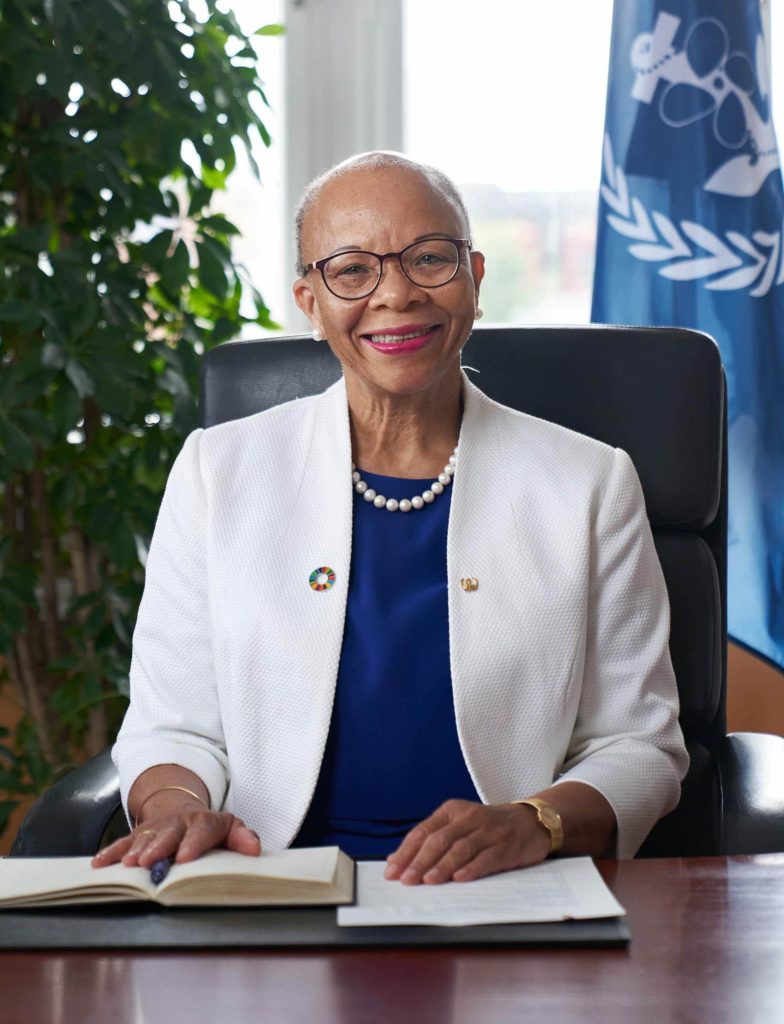The IMO and thus, the shipping industry has taken a step forward into documenting carbon emissions and a rating system, to generate actions to reduce the carbon footprint from ships to the atmosphere. WMU, the academic institution founded by the IMO in 1983 is the pillar of knowledge research and capacity building, welcomes the entry into force of the rules on ship carbon intensity and rating system with a message from Dr Cleopatra Doumbia-Henry, President of the World Maritime University:

I am delighted to note that as of 1 November 2022, Amendments to the International Convention for the Prevention of Pollution from Ships (MARPOL) Annex VI enter into force. The IMO has been working diligently to develop regulations to improve the energy efficiency of ships and thereby reduce their greenhouse gas (GHG) emissions, and this is a milestone in reaching that goal.
The maritime industry is standing at the beginning of one of its greatest challenges, as it prepares to phase out greenhouse gas emissions from international shipping, as soon as possible within this century. The “Initial IMO Strategy on Reduction of GHG Emissions from Ships” developed under the commitments of the “Paris Agreement”, has become a priority, as the human-made emission of greenhouses has begun to change our climate and is already affecting our lives in a tangible manner.
Given the phenomenal scale of the challenge ahead, and the pace at which developments are required, there is an unprecedented need for green technologies and maritime capacity building for maritime decarbonization. The green technologies we see emerging today are truly exciting, including modern energy saving devices, the harnessing of renewable energy, and zero-carbon fuels. But green technologies also need a strong and resilient maritime community that is able to think innovatively in order to overcome the challenges ahead. There is thus an unprecedented need for maritime capacity building and education to build a global community of maritime professionals able to solve the challenge of maritime decarbonization. We need bright minds to develop the regulations, invent the new technologies and create new business models to finance decarbonization effectively.
Global problems require global strategies. International research, education, and collaboration will be key to success in achieving decarbonization of the maritime sector and developing the solutions required. WMU is committed to supporting this important effort through maritime education and capacity building to address the challenge of decarbonization taking into account the people, environment and the technology needed.
Dr. Cleopatra Doumbia-Henry
President
World Maritime University
To learn more about the amendments, read IMO’s announcement here.
About WMU’s Contribution to Decarbonization of Shipping
Through cutting-edge education and research in the Maritime Energy Management (MEM) field, WMU works to support the achievement of sustainable, zero/low-carbon and energy-efficient maritime and ocean industries. WMU’s MEM educational offerings include the groundbreaking MEM MSc specialization that was introduced in 2015, and a Postgraduate Diploma in Maritime Energy delivered by distance learning. WMU’s Maritime Energy Management Research Priority Area focuses on the fundamental understanding of energy in a maritime context and the application of evidence-based knowledge across the field from ships to ports, and from oceans to shipyards, to ensure the cost-effective, safe and environmentally friendly use of resources. The book Trends and Challenges in Maritime Energy Management, was published in 2018 as an outcome of the International Conference on Maritime Energy Management (MARENER 2017) hosted at WMU in 2017. It was one of the most downloaded books in its category in 2018. A new offering in 2022 was the WMU Summer Institute on Maritime Decarbonization that brought maritime professionals together at WMU for a week-long, intensive programme focused on the opportunities and challenges surrounding the reduction of GHG emissions from shipping.
Source: WMU

